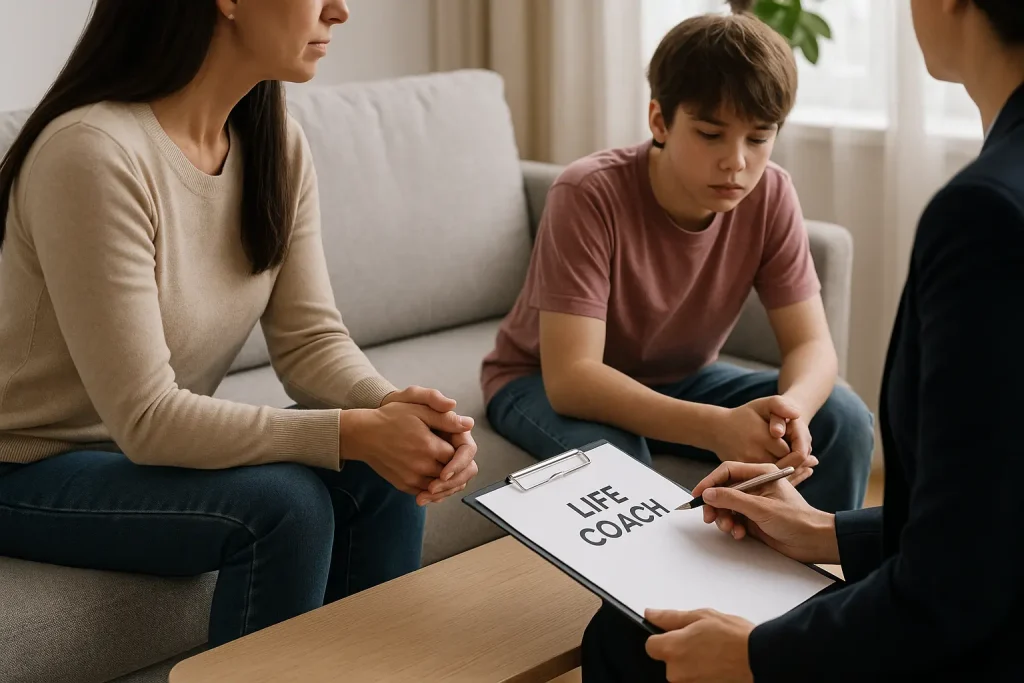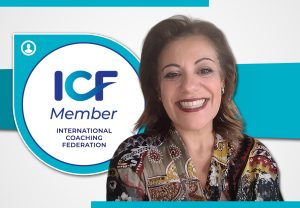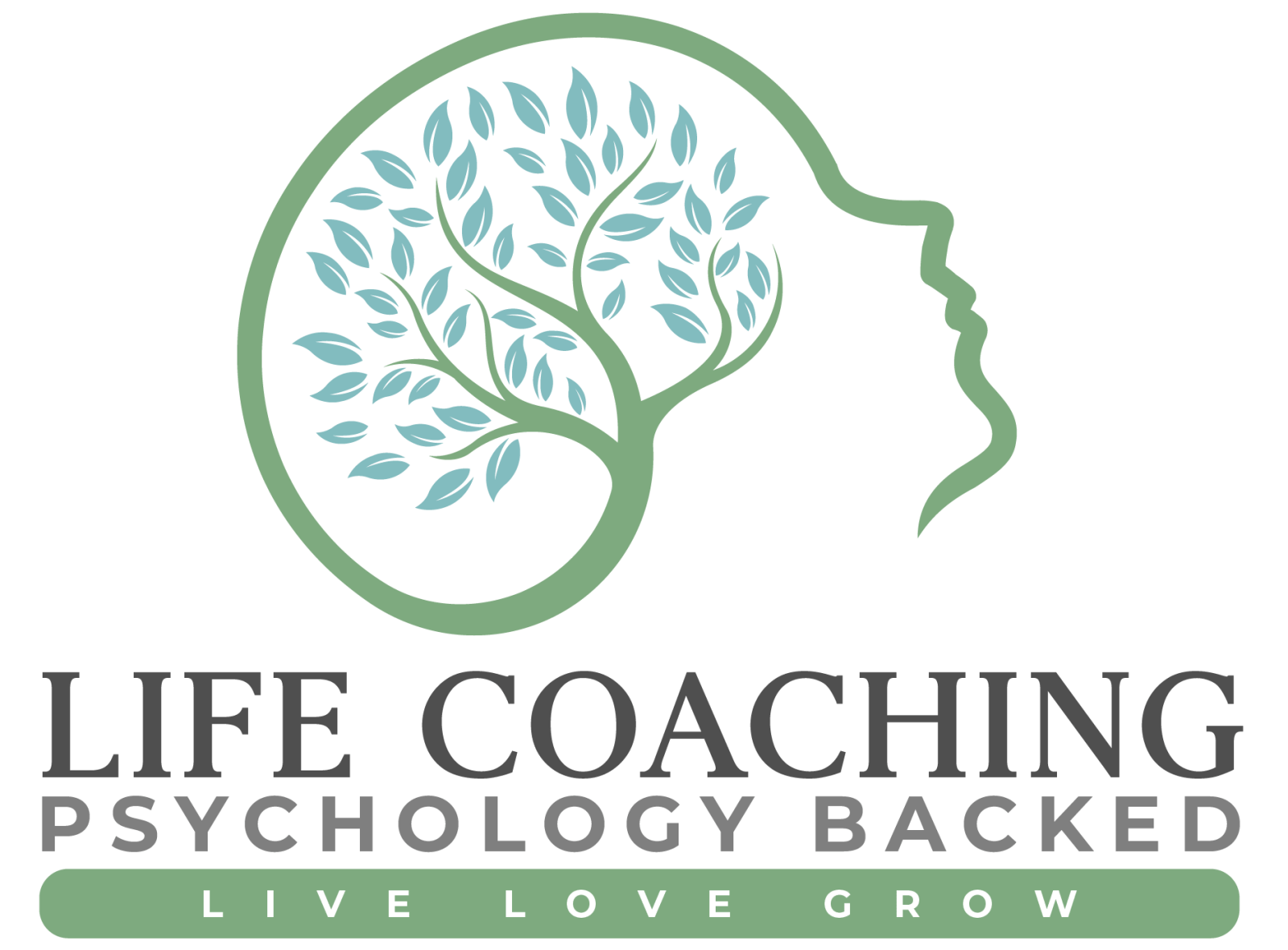When I first began my journey as a coach in Dubai, I had one clear goal in mind: to create a safe, empowering space for both teenagers and parents. I genuinely wanted and still want to help them with navigating life’s ever-evolving challenges. Over the years, I’ve worked with teens battling anxiety. They go through so much pressure, and identity struggles and parents, they try to do their best to support them while juggling their own emotional loads. And if there’s one thing that has made all the difference in my practice, it’s being trained and credentialed as an ICF (International Coaching Federation) coach.
In this blog, I want to share what ICF coaching really means, especially in the unique cultural and emotional landscape of Dubai. I’ll also talk about why it’s become a vital lifeline for so many families I work with.

What Is ICF Coaching, Really?
Let me start with what it’s not. ICF coaching is not therapy. And it is definitely not counseling, or advice-giving. It’s not at all about fixing a person or pointing out what’s “wrong.” It’s a deeply respectful and a collaborative process. It is one that sees every individual as naturally creative, resourceful, and whole.
The International Coaching Federation ( ICF) sets the global gold standard for coaching credentials. When I became certified, it meant going through rigorous training and supervision. It was always all the more about ethics, and ongoing development. More importantly, it aligned me with a coaching philosophy rooted in trust, non-judgment, and growth.
ICF life coaching in Dubai isn’t just a title, it’s a commitment to showing up with integrity. It is about structure, and true presence.
Why Does ICF Coaching Matter So Much in Dubai?
Dubai is dynamic. It is multicultural, and incredibly fast-paced. Our teens are growing up in a whirlwind of opportunity. They are constantly in competition, struggle with social media pressures and unreal academic expectations, and cross-cultural identity questions. As a life coach in Dubai, I see how these layered experiences can leave both teens and parents feeling disconnected, misunderstood, or overwhelmed.
That’s where coaches like me take responsibility, not to solve problems, but to give space for reflection. I try to aid you and your kids in your journey of self-discovery, and forward movement.
When I work with teenagers, It’s never about just talking with them, I coach with them. I ask powerful questions and we set goals together. We build clarity around what they want, not what the world expects of them. For parents, coaching often becomes a space to unpack guilt and explore communication strategies. For them, it’s about re-learning how to truly see their children without fear or judgment.
Teenagers: Coaching for the Most Underrated Stage of Life.
There’s a common misconception that teens are “too young” to benefit from coaching. I couldn’t disagree more. In fact, I believe the teenage years are the perfect time to introduce coaching tools.
This is the stage when identity is being formed. Values are taking root. Habits are being built, many of which carry into adulthood. But it’s also the time when teens are constantly being told who to be, what to achieve, and how to behave. That external noise can drown out their internal voice.
As an ICF-certified teenage life coach Dubai, my role is to help them reconnect with that voice. We explore questions like:
- What do you want to feel more confident about?
- How do you handle comparison or rejection?
- What would a life aligned with your values actually look like?
It’s not just about motivation, it’s about ownership. I’ve seen teens walk out of sessions with a clearer sense of self. They achieve stronger emotional regulation, and a renewed connection with their families. And no, it’s not magic. It’s structure, trust, and process.
Parents: Coaching as a Tool for Connection, Not Control.
Parenting in a rapidly changing world where TikTok trends, academic stress, and cultural expectations collide? Even harder.
As a parenting coach in Dubai when I work with parents, many of them come to me not because their child is struggling but because they are. They want to parent consciously. They want to communicate better. They want to build trust and independence without feeling like they’re losing control. That’s where coaching becomes a quiet revolution.
ICF coaching gives parents the space to:
- Reflect without shame.
- Learn new ways of listening.
- Understand the difference between reacting and responding.
- Parents from a place of alignment rather than fear.

What Happens in a Coaching Session?
I get this question a lot, especially from first-timers who are nervous, or unsure what to expect. Let me break it down:
- It’s confidential. Whoever I’m working with, a teen or a parent, what’s said in session stays in session unless there’s a safety concern, of course.
- It’s non-judgmental. I don’t tell you what to do. I don’t assume what’s best for you. I hold space.I ask questions, and guide the process.
- It’s goal-oriented. Coaching is about moving forward. It’ll never be about dwelling in the past. We talk about what matters now, what’s blocking you, and what steps you want to take next.
- It’s structured. Every session follows the ICF coaching framework. It’s not just a casual chat—it’s a purposeful, empowering dialogue.
Coaching vs. Therapy: What’s the Difference?
Sometimes people ask me if coaching is just therapy with a different label. The short answer? No.
Therapy often explores the why behind your patterns—especially when rooted in past trauma. It helps you heal and make sense of your story. Coaching, on the other hand, focuses on the how. How do you move forward? How do you build the life, mindset, or relationship you want?
Of course, both can work beautifully together. In fact, many of my clients see therapists and coaches at the same time each offers a different kind of support. But coaching is especially helpful when someone is ready to take action. Someone who wants to feel more empowered, and build future-focused habits.
A Note on Credentials: Why ICF Certification Isn’t Just a Badge.

In Dubai, where the coaching industry is growing fast, it’s important to know who you’re trusting. ICF certification ensures a coach has been trained in core competencies.They adhere to strict ethics, and have undergone hours of supervision and client work.
When parents come to me looking for the “best life coach Dubai,” I always encourage them to ask about credentials,not just testimonials. The coaching relationship is intimate and impactful. You deserve to work with someone who is trained. Someone who is ethical, and truly invested in your growth.
Coaching Is Not About Having All the Answers.
If there’s one thing I want every parent and teen to know, it’s this: coaching is not about having your life figured out. It’s about being brave enough to ask different questions. To show up, even if you feel unsure. To choose growth, even if it feels uncomfortable.
As a certified life coach in Dubai, I’ve seen transformation happen in subtle, beautiful ways. A teen who finally speaks up in class. A parent who replaces criticism with curiosity. A family that slowly finds its rhythm again.
ICF coaching matters—because it honors who you are and who you’re becoming.
And if you’re reading this wondering if coaching is right for you or your teen, let me say: the fact that you’re curious is already a powerful step forward.
Frequently Asked Questions
What exactly does an ICF-certified life coach do for teens and parents?
An ICF-certified life coach works with teens and parents to build clarity, confidence, and connection. For teens, this might mean managing stress along with setting goals, or improving self-esteem. For parents, it often involves learning how to support their teen without conflict or fear. ICF coaches use structured, ethical, and future-focused techniques to guide clients toward meaningful personal growth—without giving advice or judgment.
Is life coaching suitable for teenagers?
Yes, absolutely. Life coaching is incredibly effective for teenagers—especially those dealing with academic pressure, low confidence, or identity struggles. An ICF-certified coach uses age-appropriate methods to empower teens to express themselves, manage stress, and build a strong, resilient mindset.
How do I know if a life coach in Dubai is certified by the ICF?
You can ask the coach directly about their credentials or check the ICF website for their listing. An ICF-certified coach has undergone rigorous training, mentorship, and assessments. They also adhere to a strict code of ethics and ongoing development to maintain their certification.
Can a parenting coach help improve my relationship with my teen?
Yes. Parenting coaches—especially those trained and certified by the ICF—help you develop more conscious, respectful communication with your teen. You’ll learn how to listen without judgment, reduce conflict, and parent from a place of understanding and connection rather than control or fear.




